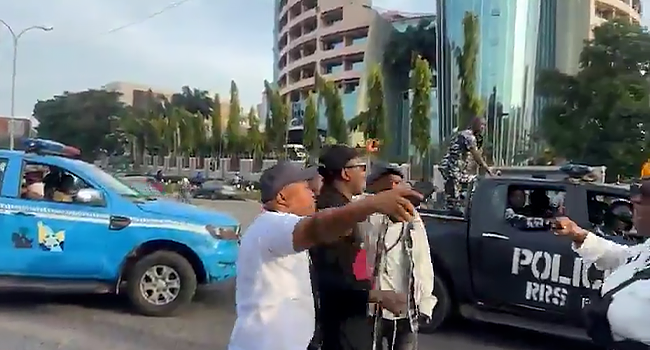Parts of Abuja were paralysed on Monday as protesters demanding the release of detained IPOB leader, Nnamdi Kanu, staged demonstrations that disrupted vehicular movement across the city.
The protest, led by activist Omoyele Sowore, began early at the Transcorp Hilton area before spreading to major routes including Shehu Shagari Way, the Federal Secretariat, and Unity Fountain.
Commuters were stranded for hours, with heavy gridlock reported around Nyanya, Karu, and the city centre.
Security operatives deployed to strategic points fired tear gas and live rounds to disperse the demonstrators. Access roads to Aso Rock Villa, the National Assembly, and Eagle Square were barricaded, while Unity Fountain—identified as the protest’s take-off point—was sealed off.
A combined team of soldiers and police officers also fired tear gas near the Nigeria Union of Journalists (NUJ) secretariat in Utako, forcing residents and bystanders to flee.
Earlier, Justice Mohammed Umar of the Federal High Court had issued an interim injunction banning demonstrations around key national institutions, warning that violators would be arrested and tracked through digital evidence.
Sowore dismissed the injunction as politically motivated, questioning why similar restrictions were not imposed on those protesting against Kanu’s release. He said over 100 lawyers were ready to challenge the order once officially served.
Kanu, leader of the proscribed Indigenous People of Biafra (IPOB), was first arrested in 2015 on treason charges, later released on bail, and re-arrested in Kenya in 2021 before being extradited to Nigeria. He remains in custody facing terrorism-related charges.

